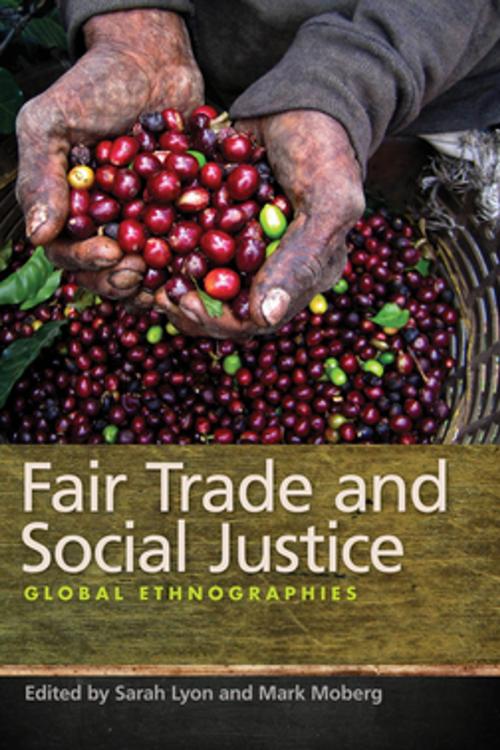Fair Trade and Social Justice
Global Ethnographies
Nonfiction, Social & Cultural Studies, Social Science, Anthropology| Author: | Mark Moberg | ISBN: | 9780814796221 |
| Publisher: | NYU Press | Publication: | June 1, 2010 |
| Imprint: | NYU Press | Language: | English |
| Author: | Mark Moberg |
| ISBN: | 9780814796221 |
| Publisher: | NYU Press |
| Publication: | June 1, 2010 |
| Imprint: | NYU Press |
| Language: | English |
By 2008, total Fair Trade purchases in the developed world reached nearly $3 billion, a five-fold increase in four years. Consumers pay a “fair price” for Fair Trade items, which are meant to generate greater earnings for family farmers, cover the costs of production, and support socially just and environmentally sound practices. Yet constrained by existing markets and the entities that dominate them, Fair Trade often delivers material improvements for producers that are much more modest than the profound social transformations the movement claims to support.
There has been scant real-world assessment of Fair Trade’s effectiveness. Drawing upon fine-grained anthropological studies of a variety of regions and commodity systems including Darjeeling tea, coffee, crafts, and cut flowers, the chapters in Fair Trade and Social Justice represent the first works to use ethnographic case studies to assess whether the Fair Trade Movement is actually achieving its goals.
Contributors: Julia Smith, Mark Moberg, Catherine Ziegler , Sarah Besky, Sarah M. Lyon, Catherine S. Dolan, Patrick C. Wilson, Faidra Papavasiliou, Molly Doane, Kathy M’Closkey, Jane Henrici
By 2008, total Fair Trade purchases in the developed world reached nearly $3 billion, a five-fold increase in four years. Consumers pay a “fair price” for Fair Trade items, which are meant to generate greater earnings for family farmers, cover the costs of production, and support socially just and environmentally sound practices. Yet constrained by existing markets and the entities that dominate them, Fair Trade often delivers material improvements for producers that are much more modest than the profound social transformations the movement claims to support.
There has been scant real-world assessment of Fair Trade’s effectiveness. Drawing upon fine-grained anthropological studies of a variety of regions and commodity systems including Darjeeling tea, coffee, crafts, and cut flowers, the chapters in Fair Trade and Social Justice represent the first works to use ethnographic case studies to assess whether the Fair Trade Movement is actually achieving its goals.
Contributors: Julia Smith, Mark Moberg, Catherine Ziegler , Sarah Besky, Sarah M. Lyon, Catherine S. Dolan, Patrick C. Wilson, Faidra Papavasiliou, Molly Doane, Kathy M’Closkey, Jane Henrici















